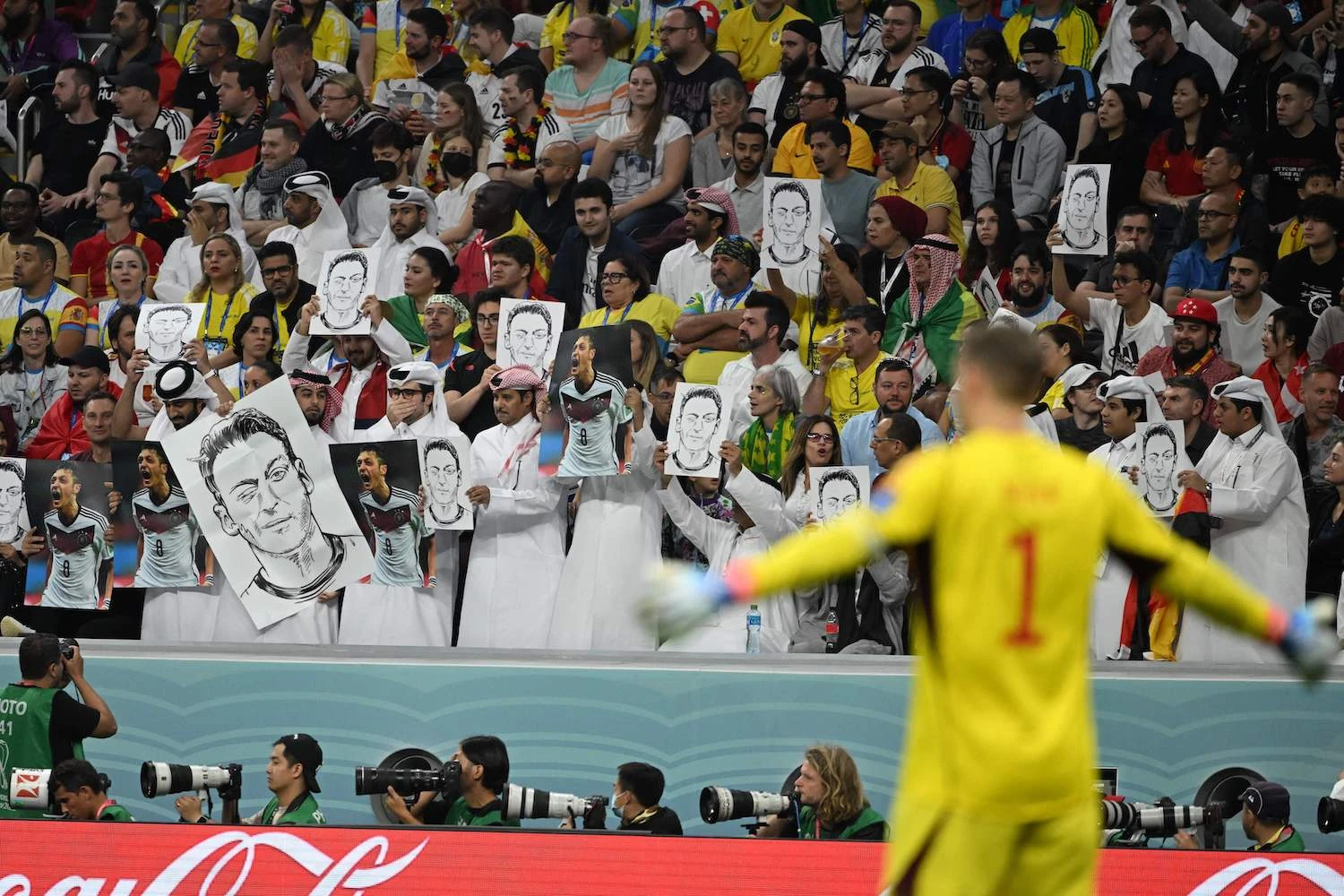Germany’s ambassador to Doha wrote that the German state cannot do without Qatar as a pro-Western ally.
Internal factions in Germany’s diplomatic and security circles are reportedly in turmoil, as per an article in major German publication Der Spiegel – dissecting Doha’s relationship with Berlin and the potential ramifications to their existing relationship.
The gestures of the German national team last week and the minister’s display of the ‘One Love’ armband during the Germany-Japan match were picked up on social media and have been widely criticise as displaying signs of “disrespect for foreign culture.”
It has also been picked up increasingly by German and other outlets, questioning the wisdom behind the arguably double-standard critiques, in spite of Germany’s heavy reliance on Qatar in security and energy sectors.
A per the Der Spiegal piece, German Foreign Intelligence Service (BND) has regarded Qatar as an “extremely well- connected and discreet partner that can be relied on,” with Doha being the western country’s partner in various sensitive cases. Most recently, Qatari intelligence managed to secure the release of a German aid worker who had been kidnapped in Yemen.
The Gulf state also helped deliver a safe exit for German citizens when the Afghan capital Kabul fell to the Taliban in the summer of 2021.
As per the publication, it is now of major contention and doubt amongst top German security circles, whether Doha will be willing to continue such aid and security manoeuvres in the future or not.
German ambassador warns of ‘serious damage’ to relations
Last week, German ambassador to Doha, Claudius Fischbach, reportedly sent a confidential letter to Berlin warning of serious damage to relations between Qatar and Germany in light of the recent disputes surrounding the World Cup, according to German newspaper Der Spiegel.
In the four-page letter, the diplomat wrote “In recent years, Germany has enjoyed a considerable bonus of trust in Qatar. […] In recent weeks, this trust bonus has been lost.”
The ambassador wrote the current sentiment towards Germany in Qatar, which is “traditionally pro-German” is described to him as “miserable”.
Emphasising that Qatar is a “serious political player”, Fischbach further wrote that the German state cannot do without Qatar as a pro-Western ally, given their reliance on Qatar’s energy supplies as well as Doha’s “proven conflict mediation in a difficult environment and reliable investor activity in Germany.”
“Our foreign policy actions towards Qatar must not lose sight of this broad panorama,” the ambassador added.
Recent portrayals of Qatar by German media and the actions by Federal Interior Minister Nancy Faeser have caused reservations in the Gulf state.
As per the German ambassador, Doha see itself as a ‘victim to an unprecedented media campaign that lacks any balance or sense of proportion” and that does not acknowledge “any of the considerable progress that has been made”.
In light of this, the ambassador has called for a revisiting of Germany’s “confrontation strategy,” noting that what is needed now is a “very high-ranking public statement with recognition of the very good organisation of the World Cup so far and satisfaction about the new LNG supply agreement.”
Further adding that it is “important to acknowledge the progress made in regard to human rights in the course of the preparations for the World Cup” and to reaffirm the interest in continuing the “traditionally good” relations.







